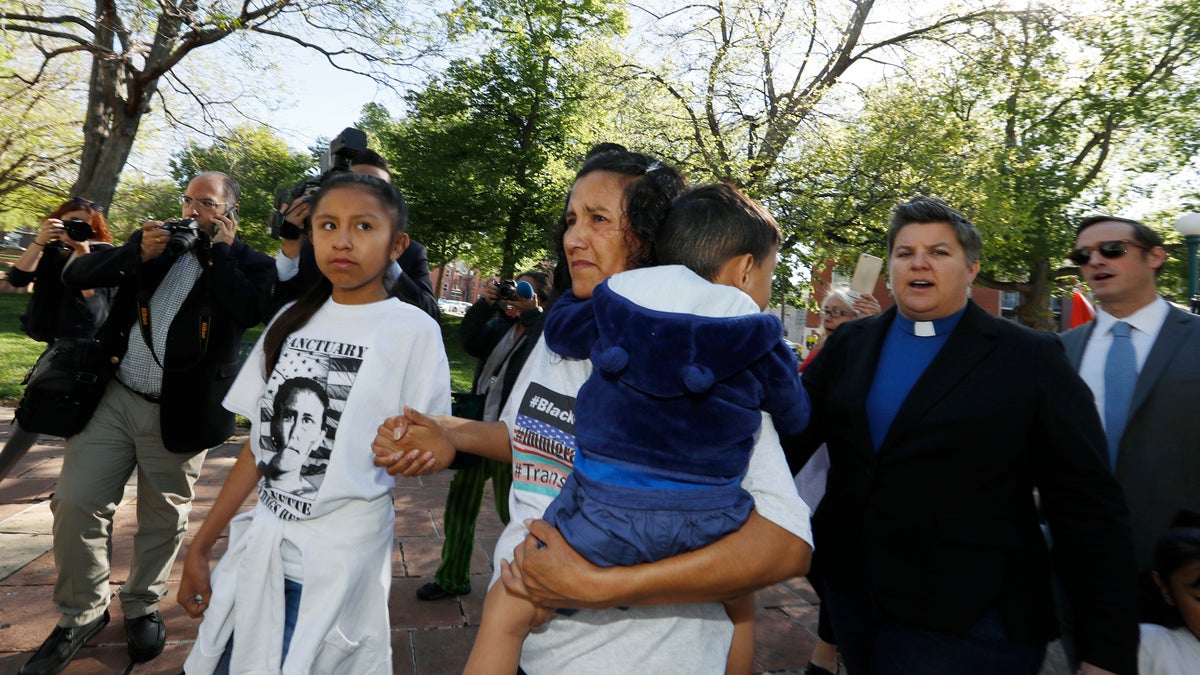
DENVER – A Mexican immigrant who lived in a Denver church for three months to avoid deportation walked away on Friday after her supporters said immigration officials gave her two more years to resolve her effort to stay in the country.
Jeanette Vizguerra (vihz-GEHR'-uh) left the First Baptist Church near the state Capitol surrounded by her children and supporters.
Speaking to the crowd while holding her daughter's hand, she said she is happy to be with her family for Mother's Day but sad that Ingrid Encalada Latorre is still living in a Quaker meeting house in Denver because she's facing removal from the United States.
"My energy will be to fight for her," Vizguerra said in Spanish through an interpreter.
Vizguerra first moved into the basement of the First Unitarian Church after skipping a check-in with immigration officials Feb. 15 out of fearing they would deport her after previously granting delays as she pursued a visa given to crime victims. She later moved to the Baptist church.
Activists said another immigrant who had taken refuge in a Denver church in 2014 and 2015, Arturo Hernandez, was also granted a two-year delay in deportation proceedings on Thursday. Hernandez was arrested by immigration agents on April 24, but he was later released after U.S. Sen. Michael Bennet intervened. Hernandez was initially given a 30-day delay.
The U.S. Immigration and Customs Enforcement did not respond to requests for comment on their status.
Bennet introduced bills to legalize the immigration status of both Hernandez and Vizguerra under a procedure that ICE recently announced it is changing. "These Coloradans have lived in our state for years, contributed to our economy and should have never been targets for deportation in the first place," he said in a statement.
In a May 5 letter to lawmakers, ICE acting director Thomas Homan said the agency will now only hold off deporting immigrants with legislation pending on their behalf for up to six months with the possibility of one 90-day extension. In the past, some extensions could go on for years as so-called private bills were renewed.

